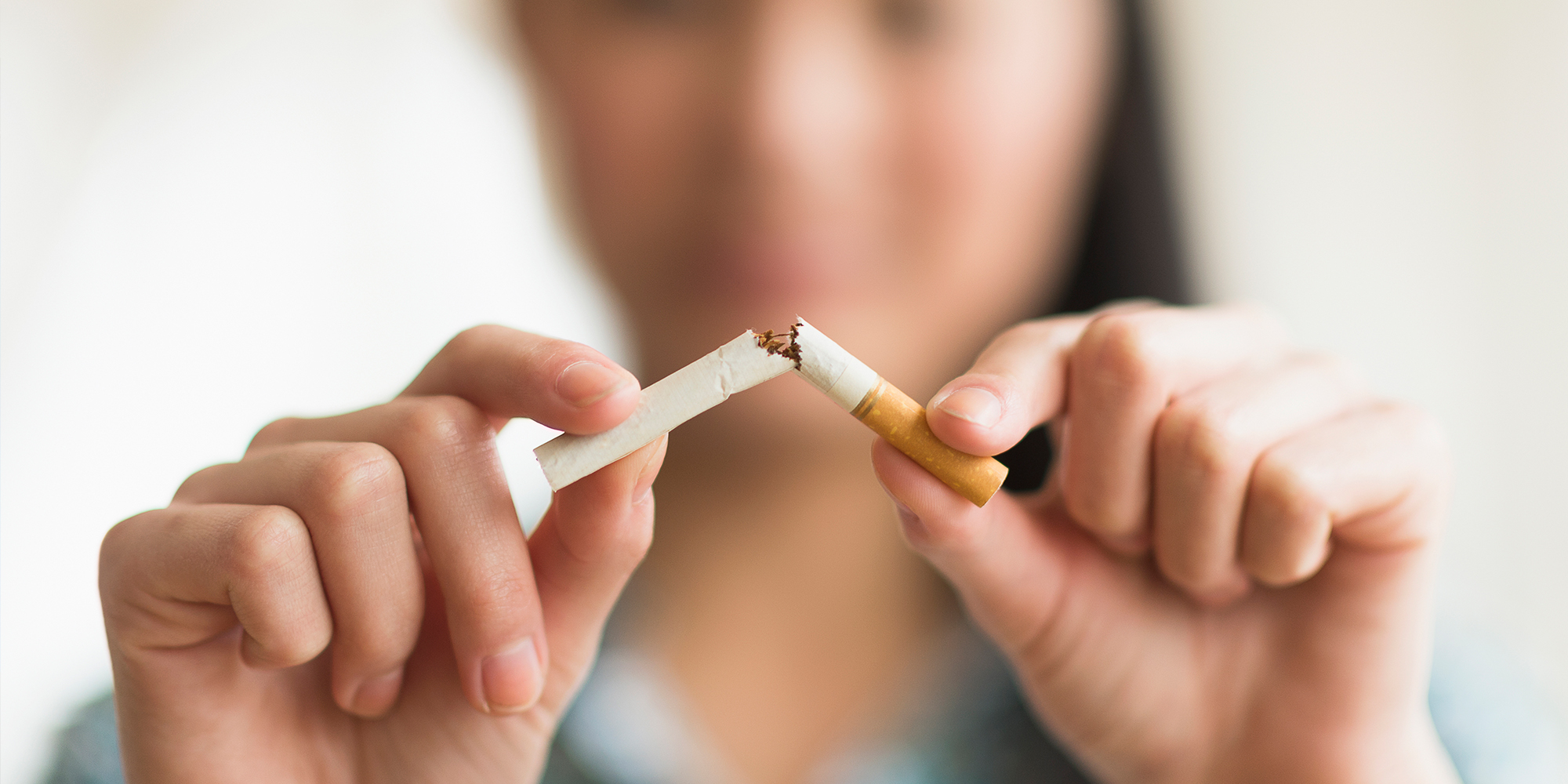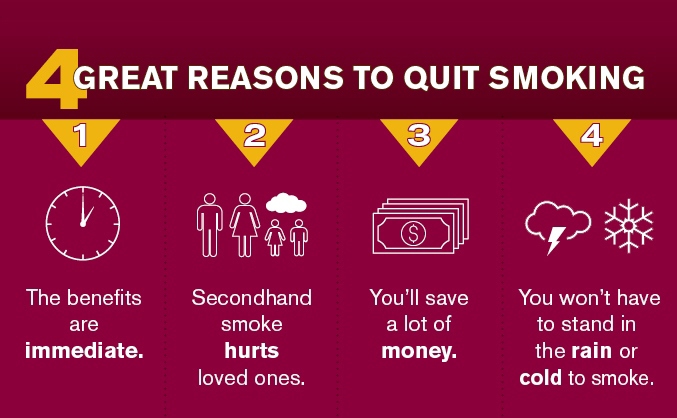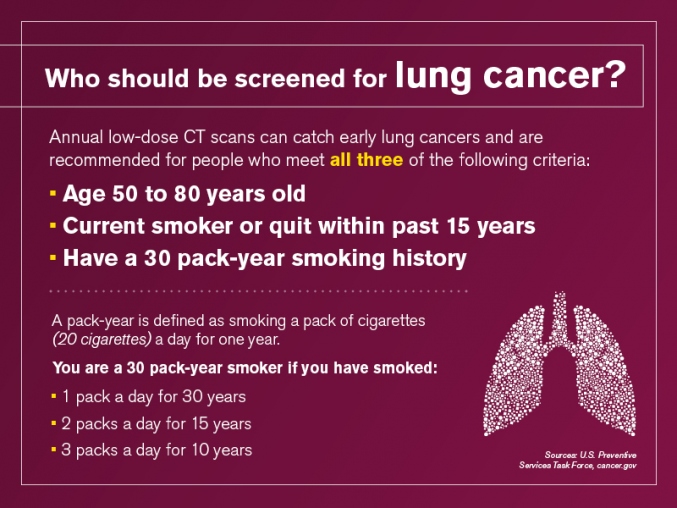8 Best Tips to Quit Smoking for Good
November 16, 2020
Categories: Lung Cancer, Cancer Care, Health & Wellness
 By Amy Buchanan, MD, Family Medicine
By Amy Buchanan, MD, Family Medicine
Smoking is a leading cause of preventable death in the United States, and according to the Surgeon General, quitting smoking is the single most important step a smoker can take to improving the length and quality of life.
Smoking is addictive and the habit can be tough to overcome but there are things smokers can do to improve their chances of successfully quitting.
These are the eight steps I recommend to successfully quit smoking:
Tip #1: Think hard about the reasons you want to quit
Is it for your health? To set a good example for your children? To save money?
Whatever your reason, remind yourself of it regularly, especially when you encounter challenges.
Tip #2: Try to understand why you smoke
Like most habits, people tend to smoke without stopping to understand why. Try to understand why you reach for your cigarettes throughout the day.
Is it to cope with stress? Do you smoke when you are bored? Is smoking part of the way you socialize with friends? Is it your ritual after a meal?
By understanding what drives your habit, you can begin to gain control of your actions.
Tip #3: Talk to your doctor
Only about 5% of people successfully quit cold turkey. Luckily, your physician can give you support and important advice, and talk to you about medications to improve your chances of becoming a nonsmoker.
While no medication can completely remove all cravings, the right medicine can be a great help and make the process much easier.
Tip #4: Tell others about your goal to quit smoking
Your friends and family will want to see you be successful. They can distract you during the first, toughest days, they can offer comfort, and they can cheer for you and celebrate your successes.
Many patients also choose to tell their church community. Your religious leaders and fellow congregation members can be a tremendous source of support and strength.
Tip #5: Set a quit date
Choose a day, mark the calendar, and stick to it.
The night before your quit date, remove all cigarettes, lighters, matches and ashtrays from your home, pockets and car.
You will be less tempted to smoke if these items are not easily accessible.
Tip #6: Know what to expect
Most smokers will tell you that the first week after quitting is the hardest. This is the time that you will go through nicotine withdrawal. You may feel irritable or anxious.
You may experience nausea, changes with your bowel habits, headaches and trouble sleeping.
You also will definitely need to make a plan to deal with cravings. Some people find relief from taking a walk, deep breathing, calling a friend, exercising, drinking water, chewing gum or eating small a piece of hard candy. Decide ahead of time what you will do to cope with cravings.
Tip #7: Don't get discouraged if you slip up
Mistakes are common because this process is tough. If you do have a cigarette, there is no need to feel discouraged.
Instead, learn from the mistake. Ask yourself what went wrong and prepare better next time.
A failure is an opportunity to learn and fine-tune your quitting strategy.
Tip #8: Follow a healthy diet and exercise plan
It is common for people to gain weight after they quit smoking. Healthy lifestyle choices can prevent this. Even if you do gain a little bit of weight, being a few pounds heavier is far healthier than your smoking habit.
If all of this sounds difficult go back to tip number one: Remember why you want to quit and think about the benefits.

If you aren't convinced why you should quit now, here are four great reasons:
Reason #1 to quit smoking: The benefits begin immediately
Soon after quitting, people have lower heart rates, lower levels of toxic carbon monoxide and better lung function.
Over time, people have fewer colds, less wrinkles, improved sense of taste and smell, and less snoring with improved sleep.
Ultimately, the risk of heart attacks, strokes and emphysema is also reduced in those who remain smoke-free.
Reason #2 to quit smoking: Secondhand smoke is a significant health hazard
Spouses of smokers suffer many of the same health problems that smokers themselves face, and children of smokers have more colds and ear infections.
Even pets of smokers have higher rates of cancer. Smokers can feel good that their decision to quit will also improve the health of those they love.
Reason #3 to quit smoking: You'll save a significant amount of money
The cost of cigarettes continues to rise, so quitting can result in substantial money saved.
Calculate how much you’ve been spending on cigarettes and think about how much you’ll save as a nonsmoker.
Reason #4 to quit smoking: You won’t have to leave friends or stand in bad weather to smoke
Many clean air laws, including those in Illinois, make smoking a hassle.
Smokers frequently have to leave friends while out at restaurants or bars, or have to step out in the middle of movies, and then often end up standing alone in the rain or cold to smoke. Quitting relieves smokers of this isolating and frustrating burden.
Do you need to be screened for lung cancer?
The U.S. Preventive Services Task Force, a government agency that evaluates evidence-based science and makes screening guidelines, recommends lung cancer screening tests for smokers at particularly high risk for developing lung cancer.

Patients should be upfront and honest with their primary care physician about their smoking history so that their doctor can accurately assess whether they might benefit from this screening test.
Amy Buchanan, MD, is a family medicine physician at Loyola Medicine. Her clinical interests include annual wellness visits, diabetes, hypertension, men's health, obesity, telehealth, well child visits and women's health.
Dr. Buchanan earned her medical degree at Loyola University Chicago's Stritch School of Medicine. She completed a residency in family medicine and pediatrics at MacNeal Hospital.
Book an appointment today to see Dr. Buchanan or another Loyola experts by self-scheduling an in-person or virtual appointment using myLoyola.
